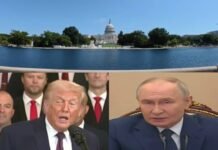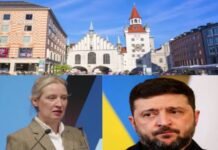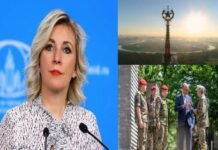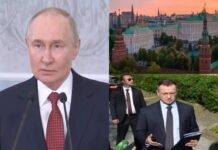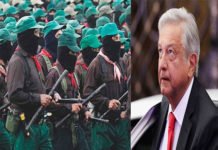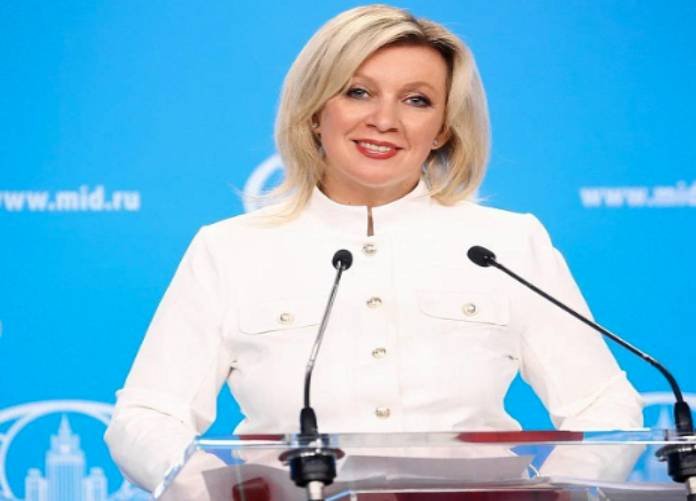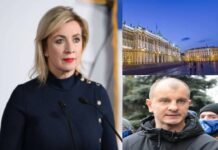*** Hate and Fear Are “Bad Advisors”
*** To Who Benefit The Exclusion in The World?
*** Today The -Practices- of The “Nazis” Return
*** Mary de la RIVERA -Entrañable- Amiga y Colaboradora de The UNIVERSE News y EL UNIVERSO Traduce la -Información- Del Inglés al Español.
Impide a Rusia -Celebre- el Día de la “Victoria”
*** El Odio y el Miedo Son “Malos Consejeros”
*** ¿A Quiénes Beneficia la Exclusión, en el Mundo?
*** Hoy Vuelven Las -Prácticas- de Los “Nazis”
By DANTE GONZALEZ / Special to The UNIVERSE News / EL UNIVERSO.
San Antonio, TEXAS.- Still, one does not hear of combatants in World War II expressing favorable judgments or anecdotes about that bloody world battle. The reason is very simple: It brings chaos, deaths, disasters and setbacks, according to specialists. And they explain:
{Todavía, no se escucha de los combatientes en la Segunda Guerra Mundial que expresen juicios o anécdotas favorables en torno a esa cruenta batalla mundial. La Razón es muy simple: Trae caos, muertes, desastres y retrocesos, según los especialistas. Y lo explican:}
“If, on the other hand, in all the countries of the planet, not now, but always: there is an unusual – rejoicing – that is perceived that the War has ended. Because, only in peace is built a social, cultural, scientific, political, etc. development, a considerable positive advance.”
{“Sí, en cambio, en la totalidad de los países del planeta, no de ahora, sino de siempre: hay un -regocijo- inusual que se percibe que haya terminado la Guerra. Porque, solo en la paz se construye un desarrollo social, cultural, científico, político, etc., un avance positivo considerable.”}
“On the engine of hatred, as a perverse and malignant feeling, have been built all kinds of malevolent actions of individual destruction (Murders, crimes, etc.) or of massive character (Wars, confrontations between ethnic sectors, etc.) that end badly.”
{“En el motor del odio, como sentimiento perverso y maligno, se han construido toda clase de acciones malévolas de destrucción individual (Asesinatos, crímenes, etc.) o de carácter masivo (Guerras, confrontaciones entre sectores étnicos, etc.) que acaban mal.”}
“Neither Hate nor Fear, negative feelings that have been present since the dawn of humanity. Both, -no- would have to serve as the basis of individual or collective human conduct for the realization of personal or social ends. In particular, for the common good.”
{“Ni el Odio, ni el Miedo, sentimientos negativos que están presentes desde los albores de la humanidad. Ambos, -no- tendrían que servir como base de la conducta humana individual o colectiva para la concreción de los fines personales o sociales. En especial, para el bien común.”}
“How much does attitudes of contempt or exclusion towards a person, a group or a country benefit the construction of World Peace, a goal that has not yet been achieved? The answer is obvious: nothing.”
{“¿En Cuánto beneficia en la construcción de la Paz Mundial, meta aún no cumplida, las actitudes de desprecio o de exclusión hacia una persona, un grupo o un país?. La respuesta es obvia: en nada.”}
“Who are interested in leading the whole of humanity, on crooked paths, inclined to evil. When in the world in various parts are plunged into wars.?”
{“¿ Quiénes están interesados en llevar a la humanidad entera, por caminos torcidos, inclinados al mal. Cuando en el mundo en varias partes están sumidas en guerras?.”}
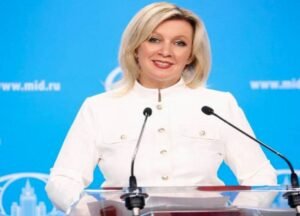
“Above all, there is currently a majority pacifist spirit that wants to give the planet earth another direction. Rejecting: the path of chaos, disaster and death, which has done so much damage to the natural evolution of man.”
{“Sobre todo, que actualmente existe un -espíritu pacifista- mayoritario que quiere imprimirle al planeta tierra, otro rumbo. Rechazando: el camino del caos, desastre y el de la muerte, que tanto daño ha hecho a la evolución natural del hombre.”}
“In what way are the things in the world, many of them are getting worse. Diplomacy between countries, and dialogue between people, is better to avoid serious problems. It would be healthier to have a peaceful ‘party,’ for everyone.”
{Como están las cosas en el mundo, muchas de ellas están empeorando. La diplomacia entre países, y el diálogo entre personas, es mejor para evitar problemas graves. Sería más sano tener una «fiesta» pacífica, para todos».}
Not inviting representatives of Russia and Belarus to the events in honor of the 80th anniversary of the Victory (Day) in World War II is a “blatant insult,” Russian Foreign Ministry spokeswoman MARIA ZAKHAROVA, said.
{No invitar a representantes de Rusia y Bielorrusia a los actos en honor del 80 aniversario de la Victoria, en la Segunda Guerra Mundial, es un “insulto descarado”, expresó la portavoz del Ministerio de Exteriores ruso, María Zajárova.}
After studying the issue, he offers a clear and concise opinion: the German authorities “continue to recreate the inhumane practices used by the Nazis”.
{Tras de estudiar la cuestión, ofrece una opinión clara y concisa: las autoridades alemanas “siguen recreando las prácticas inhumanas utilizadas por los nazis”.}
The Diplomat drew attention to the publication of the Berliner Zeitung newspaper, written with reference to a closed document of the German Chancellery.
{La Diplomática llamó la atención sobre la publicación del periódico Berliner Zeitung, escrita con referencia a un documento cerrado de la Cancillería alemana.}
Which mentions that the invitation of Russian and Belarusian representatives to the festive events in honor of the 80th anniversary of the Victory in World War II is not allowed.
{El cual menciona que la invitación de representantes rusos y bielorrusos a los actos festivos en honor del 80 aniversario de la Victoria en la Segunda Guerra Mundial, no está permitida.}
The text of the media, which from afar appears as an aberration. It also indicates that the institutions may use “the right of expulsion at their discretion”.
{El texto del medio de comunicación , que desde lejos aparece como una aberración. También indica que las instituciones pueden utilizar “el derecho de expulsión a su discreción”.}
“The mere fact that the ideological heirs and direct descendants of the executioners of [Nazi Germany’s leader ADOLF HITLER ] are going to ‘expel’ Russians from the ceremonial events dedicated to Victory Day already seems a blatant insult,” the spokeswoman described.
{“El mero hecho de que los herederos ideológicos y descendientes directos de los verdugos de [el líder de la Alemania nazi, Adolfo Hitler] vayan a ‘expulsar’ a los rusos de los actos ceremoniales, dedicados al Día de la Victoria ya parece un insulto descarado”, describe la vocera.}
ZAKHAROVA stressed that in the year of the 80th anniversary of the Victory, ANNALENA BAERBOCK and her apparatus “continue to recreate the inhumane practices used by the Nazis.”
{Zajárova subrayó que en el año del 80 aniversario de la Victoria, Annalena Baerbock y su aparato “siguen recreando las prácticas inhumanas utilizadas por los nazis”.}
“If German security forces are really going to expel Russians, Belarusians, former Soviet citizens, including Jews, from ceremonial events, it cannot be called anything other than a resurgence of Nazism,” she summed up.
{“Si las fuerzas de seguridad alemanas van a expulsar realmente a rusos, bielorrusos, antiguos ciudadanos soviéticos, incluidos judíos, de los actos ceremoniales, no puede calificarse de otra cosa que de resurgimiento del nazismo”, resumió.}
This year, representatives of the Russian Embassy were not invited to the events commemorating the 80th anniversary of the liberation of the Auschwitz concentration camp by Soviet troops on January 27.
{Este año, los representantes de la Embajada rusa no fueron invitados a los actos conmemorativos del 80 aniversario de la liberación del campo de concentración de Auschwitz, por las tropas soviéticas el 27 de enero.}
Moscow not only saw this as a blunder, but called the decision blasphemous and part of an anti-Russian campaign to falsify the history of World War II.
{Moscú no únicamente vio un desacierto, sino que calificó esta decisión de blasfemia y parte de una campaña antirrusa, para falsificar la historia de la Segunda Guerra Mundial.}
As Stated official Russian data, the country lost some 27 million people during the Great Patriotic War, including military personnel and civilians. These losses constitute one of the most tragic pages of world history and reflect the decisive contribution of the Soviet Union to the victory over Nazi Germany.
{Según los datos oficiales rusos, el país perdió unos 27 millones de personas durante la Gran Guerra Patria, entre militares y civiles. Estas pérdidas constituyen una de las páginas más trágicas de la historia mundial y reflejan la decisiva contribución de la Unión Soviética a la victoria sobre la Alemania nazi.}



